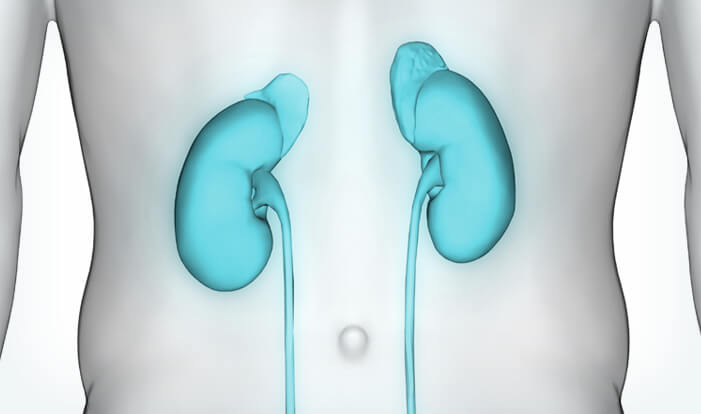Conditions We Treat Adrenal Tumors
Overview
Tumors on the adrenal glands can be classified as either cancerous or benign (non-cancerous). The overwhelming majority of adrenal tumors are benign. The adrenal glands are located on top of each kidney and produce hormones including cortisol, aldosterone, dopamine, adrenaline, and noradrenaline. Adrenal tumors that lead to excessive hormone production are called functioning tumors.

Symptoms
While adrenal tumors frequently cause no signs or symptoms, some tumors will secrete high levels of hormones that cause problems including:
- Heart palpitations
- High blood pressure
- Diabetes
- Nervousness
- Panic attacks
- Depression
- Bruising
- Weakness
- Excessive sweating
- Unexplained weight loss or gain
- Abdominal pain
- Fat deposits on the neck
- Genitalia changes
- Excessive hair growth
Diagnosis
Blood and urine tests will check adrenal hormone levels. A CT or MRI scan may be used to gather images of the adrenal gland and any tumors.
This information will determine whether or not the adrenal mass needs to be removed.

Treatment Options
Patients with small tumors that do not release hormones can watch and wait to see if it grows and requires future treatment. Regardless of size, most functioning tumors (those that release excessive hormones into the body) should be surgically removed through a procedure called an adrenalectomy. The majority of adrenal tumors can be removed with a minimally invasive approach. Dr. Uecker prefers a robotic surgical approach for adrenal tumors (robotic adrenalectomy) which helps facilitate a rapid recovery for the patient.
Medication to balance hormones may be utilized before or after surgery depending on which hormones are elevated.
